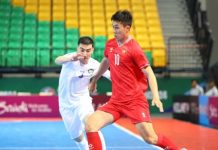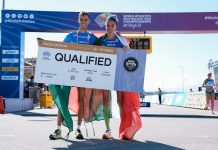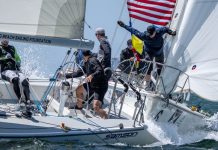Marathon swimmers taking part in a 2016 Olympics test event in Rio’s notoriously polluted off-shore waters suffered no serious health problems, thesport‘s governing body said Friday.
Fifty competitors from Brazil, Canada, China, Czech Republic, France, Germany, Great Britain, Hungary, Ireland, Italy, Japan and Netherlands took part in the test at Rio’s iconic Copacabana beach on August 22 and 23.
“Up to date, 26 days after the conclusion of the event, there is no notice of any subsequent health issue on the athletes that competed in Rio,” said a FINA statement.
“Consequently, the waters of the Copacabana beach were safe during the organisation of the marathon swimming test event.”
The claims by FINA came just a day after Brazilian media reported that the swimming body had written to Rio mayor Eduardo Paes to express their concerns over the water quality at Copacabana as well as other watersport venues for the 2016 Games.
On Friday, FINA said they will continue to monitor the situation ahead of the Olympics which run from August 5-21 next year.
“The FINA Sports Medicine Committee, in co-ordination with the IOC, Rio 2016 Organising Committee and INEA (Brazilian State Institute for the Environment), will continue conducting tests and monitoring the quality of the waters in Copacabana beach, in accordance with International Standards,” added the statement.
Earlier this month, the president of the Rio Olympics organising committee vowed to address concerns about water pollution at a sailing venue.
Two competitors had to be hospitalised following a recent test regatta at Rio’s picturesque Guanabara Bay, while other events have been disrupted by floating debris such as rubbish and dead animals.
In August, German sailor Erik Heil revealed that he had had to undergo an operation on a serious skin infection after competing in the Olympic test regatta at Guanabara.
“I have never in my life had a leg infection,” he wrote in a Sailing Team Germany blog. “I assume that I got it from the test regatta.” – Agence France-Presse



































